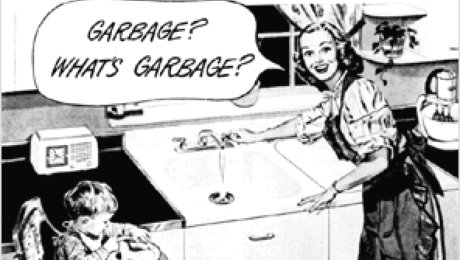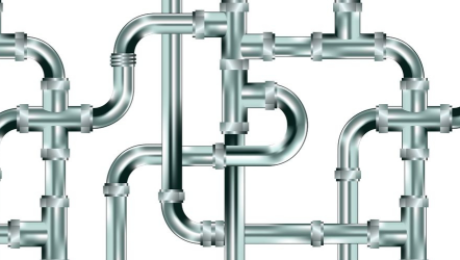6 Tips to Holiday-Proof Your Plumbing
Deck the halls, wrap the gifts and check your plumbing. Holiday gatherings bring good cheer, good food, and extra stress on your drains, garbage disposal and plumbing system. A few precautions can make all the difference, so take note and get ahead of the game.
1. Make sure you have mesh screens over your sink and tub drains. You never know what a little munchkin might drop into the sink or bath. (Not to mention the extra food and hair.)
2. Your garbage disposal can only do so much. The intention is not to absorb all of your food waste. Only put small scraps in the disposal, scrape the rest into the trash. Never put these foods down your garbage disposal: coffee grounds, meat, poultry, fish, beef or pork bones (chicken bones are okay), pasta, rice, bread, potatoes, fruit or vegetable peels. Have cold water running through the disposer the entire time you are using it, this keeps the food firm and it chops up better.
3. Don’t pour grease down the sink. This is bad on all levels— the disposal, the drain pipe, the smell…you get the picture.
4. Space out showers. If everyone waits until the last minute, someone’s getting a cold shower. Give your water heater time to re-heat the water in between. (Tip: Have some people bathe at night.)
5. Make sure your toilet isn’t continuously or randomly running. If it’s running and not being used, it could be a faulty rubber stopper. This is easy to change, and expensive if you don’t.
6. When all else fails, keep a drain snake and toilet plunger handy. Let’s face it, life happens and things can get messy.
- Published in Tips of the Trade
Pipes – Repair or Replace? That is the question…
Homeowners walk a fine line between maintaining existing plumbing fixtures and knowing when to bite the bullet and replace them. Weighing the cost of replacement with the potential cost of a plumbing mess isn’t easy so here are a few tips to help you assess the situation.
Pipes
First things first, figure out what kind of pipes you have and how old they are. Supply pipes made of brass, copper or galvanized steel should last 80-100 years. Drain lines made of cast iron should also last this long. Polyvinyl Chloride (PVC) pipes generally last 25-40 years, but are traditionally known to break or leak. These figures can vary dramatically depending the quality of your water, the quality of the material used, and how well the systems have been maintained.
If your pipes are on the older side, it doesn’t necessarily mean they have to be replaced. However, if you have lead or polybutylene pipes they should be replaced regardless. Lead leaches into drinking water and polybutylene is extremely prone to leakage.
Check areas around pipes for discoloration, stains, dimpling, or flaking, which could mean you have a leak. If you see anything out of the ordinary, look for other leaks— chances are there’s more.
Watch the color of your water, especially after vacation when it hasn’t been running. If it’s a yellow or brownish color, you could have rust.
Do you have hard water? If so, you have an above average concentration of minerals like calcium and magnesium, which leaves scale, or a film, behind. This film can accumulate in your pipes and other water-involved fixtures, eroding them.
Fixtures
Fixtures are relatively inexpensive to replace and can save you money in the long run. Newer model faucets, showerheads and hoses generally reduce water usage and are more energy efficient. If you have leaks, it’s best to replace the entire fixture instead of trying to fix it.
Toilets
Toilets can last a long time, so it’s easy to say, “If it ain’t broke, don’t fix it,” but the improved water efficiency justifies the investment; not just for the money savings, but because it’s better for the environment.
Definitely replace the toilet if the porcelain is cracked, if it’s flushing poorly, constantly running, or has a hissing sound which means the float and fill valve may be wearing out. The handle alone can be replaced if it won’t flush, or if the toilet constantly runs.
Water Heaters
Traditional water heaters should last 10-15 years, and tankless heaters should be good for 20 years depending, again, on the quality of your water. Replace your conventional heater if the pilot light keeps going out, or if the circuit or breaker keeps tripping in a tankless water heater.
Other indicators it’s on it’s way out are if the burner or heating element is failing, the thermostat breaks, valves are sticking, or if there are leaks and rust around the heater.
Garbage Disposals
Garbage disposals should probably be replaced every 10 years. It’s time for a new one if you constantly get clogs, your food takes a long time to break down, you have to keep resetting the disposal, or if there is a lingering odor that won’t go away.
- Published in Tips of the Trade


